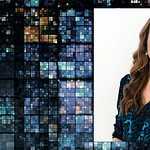What retired senior judges choose to say about major issues of the day is of real interest and importance — particularly when they are discussing legal issues — a former head of civil justice said last night.
Lord Dyson, who retired as master of the rolls in 2016 and then rejoined the chambers he used to head as a barrister, was delivering a lecture at Gray’s Inn called “Judicial after-life: should it be subject to any limits?”
His starting point was an open letter published in April and signed by Lady Hale, former president of the Supreme Court, as well as 600 other former judges and lawyers. The letter asserted that the International Court of Justice had “concluded that there was a plausible risk of genocide in Gaza”.
As Dyson kindly mentioned in his lecture, I then pointed out that this was not what the court had said. It was the Palestinians’ rights that were found to be plausible, not the risk they might face.
This prompted Dyson to sign a counter-letter correcting the error, something he told me he had never done before.
A final attempt to put right widespread misreporting of the court’s ruling was made some weeks later by the judge who had delivered it. “The court decided that the Palestinians had a plausible right to be protected from genocide,” Joan Donoghue told the BBC. “It didn’t decide that the claim of genocide was plausible.”
Meanwhile, Dyson had been struck by a paragraph in the Guardian’s report of the letter Hale had signed:
The letter’s significance lies not just in the number of signatories but the fact that it has been signed by senior retired judges, who normally shy away from commenting publicly on issues that are politically sensitive.
That was the catalyst for his Birkenhead lecture at Gray’s Inn, he said in an interview this week.
I asked Dyson whether it was appropriate for retired judges to give legal advice. If so, should they be regulated in the same way as lawyers?
We discussed whether Lord Neuberger, Hale’s predecessor as president of the Supreme Court, should have advised the Post Office on the civil claims against it — and whether its counsel, Lord Grabiner KC, had been right to hint at Neuberger’s involvement when addressing a court.
Arguing that Mr Justice Fraser should withdraw from the case, Grabiner had told the judge:
I am not the only judicial figure or barrister that has looked at this with a view to reaching that conclusion. It has also been looked at by another very senior person before the decision was taken to make this application.
I also pressed Dyson on whether he thought Neuberger and Lord Hoffmann should continue to sit in the Hong Kong Court of Final Appeal.
You can hear our conversation in the latest edition of A Lawyer Talks. My podcast is reserved for paying subscribers to A Lawyer Writes but, as an experiment, I am offering this brief taster to all readers:1
It’s an amusing example of how intimidating it may be for judges to find someone who has served at a higher level in the judiciary appearing before them in court.
Listen to this episode with a 7-day free trial
Subscribe to A Lawyer Writes to listen to this post and get 7 days of free access to the full post archives.












